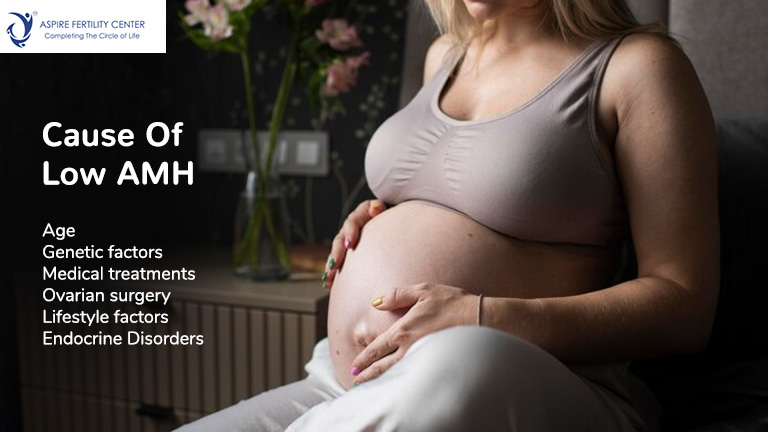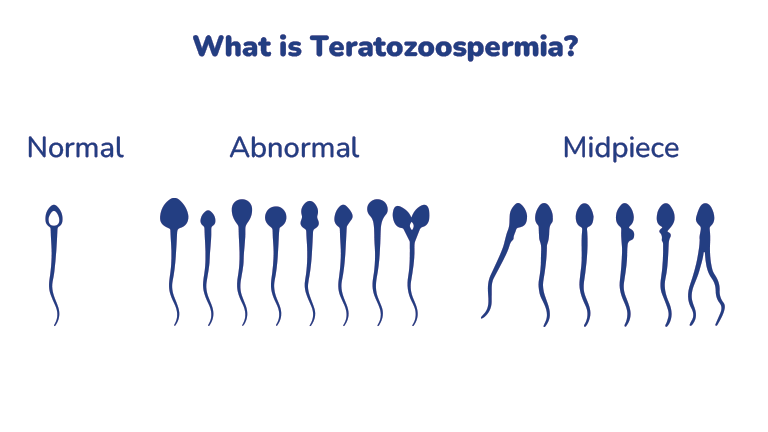Anti-mullerian Hormone (AMH) plays a pivotal role in reproductive health. But, supremely, it plays a key role in determining a woman’s ovarian reserve.
This hormone, produced by the ovarian follicles, helps assess a woman’s fertility potential. So, Therefore, it is important to know how crucial AMH is for planning families or monitoring overall reproductive health.
Recognising the symptoms of low AMH levels is highly essential because this provides early insights into potential fertility challenges, prompting timely intervention and management.
This article aims to shed light on the symptoms associated with low AMH levels, offering a foundational understanding for those concerned about their reproductive well-being.
But first, let’s understand what AMH is:
What are Anti-Mullerian Hormones?
The granulosa cells in ovarian follicles produce a substance known as anti-Mullerian hormone (AMH). It is vital to the growth of follicles, which are necessary for the production of eggs.
AMH levels are assessed in clinical settings to evaluate a woman’s ovarian reserve or her potential egg production, which is a crucial component of fertility.
Because the hormone’s levels tend to correlate with the number of antral follicles in the ovaries, they are thought to be a reliable indicator of a woman’s fertility status.
Moreover, planning a family or undergoing fertility treatments requires an understanding of AMH levels. These stages reflect ovarian ageing, which does not always occur in correlation with chronological ageing.
As a result, AMH is a useful tool in reproductive medicine since it provides a moment in time of a woman’s potential for reproduction. Understanding what AMH means is important for patients and medical professionals, as it can impact decisions about family planning and reproductive treatments.
What Are Some Symptoms of Low AMH Levels?
Without specific testing, low anti-Mullerian hormone (AMH) levels can be a subtle indicator that may not show up as obvious symptoms. As such, it can be somewhat elusive.
Low AMH, in contrast to other medical conditions, is not always accompanied by obvious physical symptoms; however, it is frequently discovered during fertility evaluations or investigations into reproductive health concerns.
On the other hand, these are some non-direct indicators that are linked to decreased AMH levels that may suggest decreased ovarian reserves:
Irregular Menstrual Cycles:
A woman with low AMH levels could go through an abnormal menstrual cycle. Most often, they are generally faced by a cycle without any warning whatsoever. Additionally, unusually heavy/light flow or missed periods are also the indicators. All of these can point to reduced ovarian function at the root due to an underlying hormonal imbalance.
Difficulty Conceiving:
One main broad symptom that is pointed out in cases with low AMH is difficulty conceiving or infertility. A decrease in ovarian reserve associated with low AMH levels can interfere with natural conception, and this brings turmoil to pregnancy achievement.
Decreased Ovulation:
Low levels of AMH are caused by a reduction in the number of eggs, a high percentage of which is likely due to poor quality. All these combined may affect fertility because, in each cycle, only a limited number of eggs may form and be available to be fertilised.
Premature Menopause:
Low levels of the anti-Müllerian hormone also speed up ovarian ageing and may allow early menopause or early onset of menopausal symptoms such as hot flushes, night sweats, and drying up of the vagina. And this ultimately causes premature menopause that is strong enough to disrupt fertility and reproductive health.
Poor Response to Ovarian Stimulation:
Women who have undergone ovarian stimulation may show a poor response to the protocols set by them, i.e., they produce less than the expected number of follicles and eggs. This could mean that the AMH levels are truly low.
Elevated Follicle-Stimulating Hormone (FSH) Levels:
When a woman’s body tries to make eggs, it releases a hormone called FSH (follicle-stimulating hormone). This hormone assists with the process of maturing eggs in the ovaries. This is essential for the conception process.
If someone is experiencing an insufficient amount of a hormone referred to as AMH (anti-Mullerian hormone), this could be because there’s too much FSH around. This can be a problem since it indicates that the woman’s reserve of ovarian eggs (the quantity of eggs she’s left) is insufficient, which makes it harder for her to become pregnant.
Emotional Distress:
Symptoms associated with fertility challenges and hormonal imbalances can indicate some of the emotions that take a toll on women. These generally include anxiety, depression, frustration, and stress. Therefore, dealing with the emotional impact of fertility challenges due to the results of low AMH levels could be stressful for women.
Understanding The Cause Of Low AMH

Several factors, some inherent and others external, can influence the level of anti-Mullerian hormone in a woman’s body. Understanding these can help in addressing the underlying causes and seeking appropriate interventions :
Age:
- The most common and natural cause of low AMH levels is ageing. As a woman grows older, her ovarian reserve diminishes, reflected in decreasing AMH levels.
Genetic factors:
- Some women may be genetically predisposed to having a lower ovarian reserve, which can result in lower AMH levels even at a younger age.
Medical treatments:
- Certain medical treatments, especially those involving the ovaries or reproductive system, like chemotherapy or radiation, can impact AMH levels.
Ovarian surgery:
- Surgeries that involve the removal of part of the ovarian tissue can reduce the number of functional follicles, leading to lower AMH levels.
Lifestyle factors:
- Smoking, excessive alcohol consumption, and certain environmental toxins have been linked to reduced ovarian reserve and lower AMH levels.
Endocrine Disorders:
- Certain endocrine disorders, such as polycystic ovary syndrome (PCOS) or thyroid disorders, can impact AMH levels. Hormonal imbalances associated with these conditions may affect follicular development and AMH secretion, leading to alterations in ovarian reserve and fertility.
Check out our latest blog on PCOS: Understanding PCOS.
What Are Some Treatment Options For Low AMH Levels?
At Aspire Fertility Center, individuals with low anti-Mullerian hormone (AMH) levels are offered a comprehensive range of treatment options aimed at addressing underlying fertility concerns and optimizing their reproductive outcomes.
Here are some of the low AMH treatment options available at Aspire Fertility Center:
In Vitro Fertilisation (IVF):
IVF is a highly effective fertility treatment offered at Aspire Fertility Center for individuals with low AMH levels. During IVF, multiple mature eggs are retrieved from the ovaries, fertilised with sperm in a laboratory setting, and transferred to the uterus for implantation. This advanced reproductive technology can overcome low ovarian reserve associated with low AMH levels.Intracytoplasmic Sperm Injection (ICSI):
For couples facing male factor infertility in addition to low AMH levels, Aspire Fertility Center offers Intracytoplasmic Sperm Injection (ICSI) as part of the IVF process. ICSI involves injecting a single sperm directly into the egg to facilitate fertilisation, bypassing potential barriers to conception.Preimplantation Genetic Testing (PGT):
Aspire Fertility Center offers Preimplantation Genetic Testing (PGT) to individuals undergoing IVF with low AMH levels. This allows for the screening of embryos for chromosomal abnormalities or genetic disorders before embryo transfer, improving the chances of a successful pregnancy and reducing the risk of miscarriage.
Fertility Preservation:
For individuals with low AMH levels who are considering fertility preservation due to medical treatments or personal reasons, Aspire Fertility Center provides options such as egg freezing (oocyte cryopreservation) or embryo cryopreservation. These techniques allow for the preservation of fertility potential for future use.
How to Improve AMH Levels?
Healthy diet:
A balanced diet rich in antioxidants, vitamins, and minerals can support ovarian health. Foods that are high in antioxidants, like berries, leafy greens, and nuts, are encouraged.Regular exercise:
Moderate exercise can improve overall health and has been linked to better reproductive outcomes. However, excessive exercise should be avoided as it can negatively affect fertility.Stress management:
Chronic stress can impact hormonal balance and fertility. Techniques like yoga, meditation, and mindfulness can be beneficial.Avoiding toxins:
Exposure to certain environmental toxins and lifestyle factors like smoking can affect ovarian reserve. Minimising these exposures can be beneficial.Supplements:
Some studies suggest that supplements like Coenzyme Q10, DHEA, and vitamin D might improve ovarian health. However, always consult with a healthcare provider before starting any supplements.
Conclusion
Understanding the symptoms and implications of low anti-Mullerian hormone levels is crucial for individuals navigating fertility concerns.
By adopting lifestyle changes, seeking medical interventions, and maintaining a positive outlook, it’s possible to overcome challenges and achieve reproductive success.
Connect with our team to discuss more about the treatments available at our Center.







